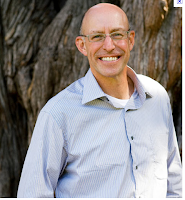Was reading Wayne Pacelle’s blog and saw a post on the horrific conditions at a Smithfield Foods supplier farm. He talked about the gestation crates…
Asking that animals merely be able to turn around hardly seems like asking too much, especially for a company that had $144 million in profits in the second quarter. But it’s the right thing to do.
It’s the right thing to do. Those words had a familiar ring. I went back to the Hormel site on humane treatment and there it was.
This is simply about treating animals humanely because it’s the right thing to do.
But that’s a common enough expression. One of the world’s biggest slaughterers couldn’t have any more overlap with the world’s biggest animal advocacy organization. Well, they do cite the same authorities…
Wayne Pacelle: “Dr. Temple Grandin, among the world’s foremost farm handling experts, properly observed that these crates need to be phased out.”
Hormel, on their website, takes great pride in being a Temple Grandin-approved slaughterer (though, in fairness, it’s hard to find any deep-pocketed animal slaughtering company that isn’t TemplGrandin-approved).
Temple Grandin says, “[Hormel] has been a leader in working with university researchers on studies that will improve animal welfare”
Okay, how do Hormel and HSUS react to undercover videos documenting abuse of pigs?
Hormel on the video taken in one of their supplier farms: “We find the images in the video appalling.”
Wayne Pacelle: "It is shocking to see these intelligent curious animals immobilized in the crates with bloodied heads and gaping wounds … endure rough handling with no veterinarian in sight."
No veterinarian in sight. The Hormel PR people are nodding in unison. We couldn’t agree more. We have a head veterinarian. His name is Daryl Olsen. According to the Hormel website, Daryl Olsen loves animals and takes pride in producing top quality hogs. Proper judicious use of antibiotics is going to ensure the consumer a better product in the end, he says.
But can we digress back to Wayne Pacelle talking about the shock of seeing “these intelligent curious animals immobilized.”
As intelligent and curious animals these pigs might wonder how you could film undercover videos and document the horrific abuses and hold press conferences about said horrific abuses but not once in all your many pages of literature offer up the suggestion that people could end the abuse of these animals by not eating them. Here’s your big opportunity, HSUS. Separate yourself from Hormel. If people stopped eating pigs, you’d never see another video like this again.
Silence…
Wayne? Wayne? There's a blank page on your blog, just waiting for you.
Hey, did you hear the latest on Michael Vick? I put a photo of him on my blog, addressing some school kids on the importance of treating pets with kindness.
Yeah, Michael Vick's having a great season, getting plenty of ink, and if the HSUS can position itself as his moral rehabilitator, it could mean plenty of $$$. But put it somewhere, anywhere, in your blog. Tell people they can stop consuming animal products. It isn’t hard to do. A vegan diet is surprisingly delicious. Far healthier than an animal-based diet. Yeah, we know, Reducing the consumption of meat is in one of your campaigns, part of the Three R’s. But instead of Reduce, why not Eliminate? It doesn’t begin with the letter R and "Two R’s and one E" doesn’t have the same sing-song catchiness as the Three R’s.
Okay, how about an asterik next to Reduce? Then way down at the bottom in mouse type, so none of your donors can see it unless they squint, say, “If you really want to do your part to make sure pigs aren’t treated this way, don’t reduce your consumption of animal products, stop. Just like that. Stop. Go vegan."
To paraphrase you, Wayne Pacelle, asking that you merely offer up the possibility that people stop consuming animals hardly seems like asking too much, especially for an animal advocacy organization that had $97 million in donations last year.
But you won’t do it because of that same R word. Reduced, as in reduced donations. Look, nobody’s asking you to invade your donors’ suburbs with leaflets. Just say the word. Once. Vegan. Or maybe the same way a child is forbidden to say the word “fuck” the Humane Society can never use the word "vegan." Their donors eat meat, they don’t want to offend and that’s that. And, of course, there are only so many hours in the day. Waste time on a post advocating veganism and you might not be able to weigh in on that day’s developments in the ongoing saga of of Michael Vick’s rehabilitation and his worthiness for dog ownership.







